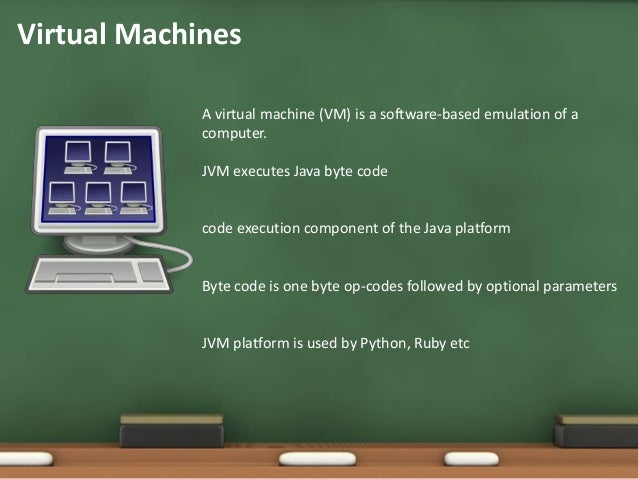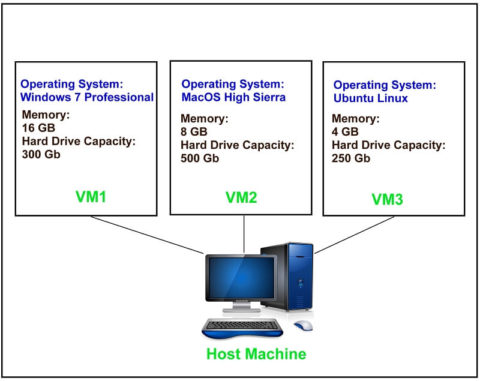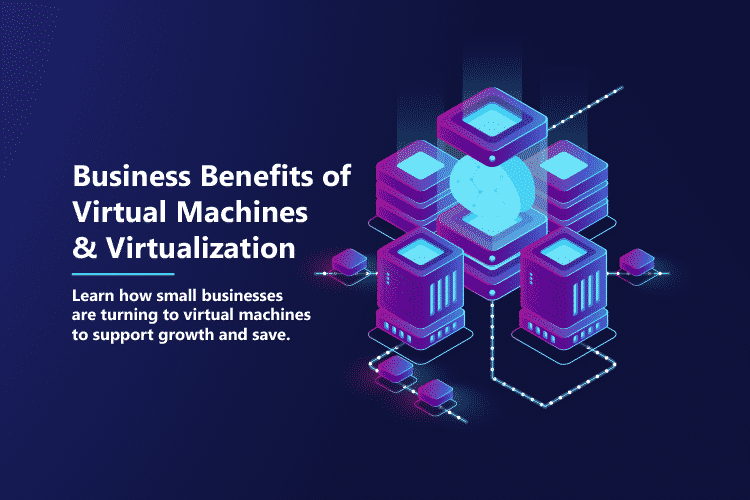Virtual Mechine Presentation
| Introduction to Virtual Machines | ||
|---|---|---|
| A virtual machine is a software emulation of a physical computer system. It allows multiple operating systems to run on a single physical machine. Virtual machines provide isolation and flexibility for software development and testing. | ||
| 1 | ||
| Benefits of Virtual Machines | ||
|---|---|---|
| Virtual machines enable hardware consolidation, reducing the need for physical servers. They offer increased security by isolating applications and data. Virtual machines provide a scalable and flexible infrastructure for cloud computing. | ||
| 2 | ||
| How Virtual Machines Work | ||
|---|---|---|
| Virtualization software, such as VMware or VirtualBox, creates virtual hardware components. The virtual machine monitor (VMM) or hypervisor manages the virtual hardware resources. Each virtual machine has its own operating system, drivers, and applications. | ||
| 3 | ||
| Types of Virtual Machines | ||
|---|---|---|
| System virtual machines emulate an entire computer system, allowing multiple operating systems to run simultaneously. Process virtual machines provide a virtualized environment for running specific applications. Network virtual machines simulate network components, allowing for testing and development. | ||
| 4 | ||
| Use Cases for Virtual Machines | ||
|---|---|---|
| Virtual machines are commonly used for software development and testing purposes. They are utilized in server consolidation to reduce hardware costs and improve efficiency. Virtual machines are ideal for creating isolated environments for malware analysis and security testing. | ||
| 5 | ||
| Performance Considerations | ||
|---|---|---|
| Virtual machines can introduce overhead due to the emulation layer and resource sharing. Proper resource allocation and monitoring are crucial for optimal performance. Hardware-assisted virtualization technologies, such as Intel VT-x or AMD-V, can improve performance. | ||
| 6 | ||
| Virtual Machine Management | ||
|---|---|---|
| Administrators can manage virtual machines through a centralized management console. Tasks include provisioning, monitoring, and configuring virtual machines. Virtual machine snapshots allow for easy backup and restoration of VM states. | ||
| 7 | ||
| Virtual Machine Security | ||
|---|---|---|
| Virtual machines can be isolated from each other and the host system, enhancing security. Regular patching and updates are necessary for both the host and virtual machines. Network security measures, such as firewalls and virtual private networks (VPNs), should be implemented. | ||
| 8 | ||
| Popular Virtualization Platforms | ||
|---|---|---|
| VMware vSphere is a leading enterprise virtualization platform. Microsoft Hyper-V is a hypervisor-based virtualization platform for Windows. Oracle VirtualBox is a free and open-source virtualization software for desktops. | ||
| 9 | ||
| Conclusion | ||
|---|---|---|
| Virtual machines offer numerous benefits, including hardware consolidation, flexibility, and security. They are widely used in various industries for software development, server consolidation, and network simulations. As technology advances, virtual machine performance and management continue to improve, making them an essential tool in modern computing. | ||
| 10 | ||









